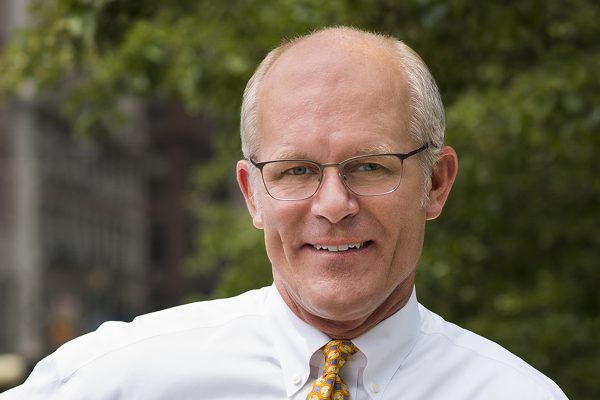The psychology of happiness
On the first day of class, Jessica Schultz asks her students to write down their future goals. “To be happy” almost always is at the top of the list of responses, she said.
“Happiness is built into the framework of our country,” said Jessica, an assistant professor of psychology at Augustana College.

She will present on Oct. 25 and Nov. 1 in the Chapel on The psychology of happiness. “People everywhere are striving for happiness and asking key questions related to it. What is happiness? What does it look like? How do I get happier?”
The sessions will take a look at these questions, and try out the evidence-based strategies designed to increase it.
Jessica, who has a bachelor’s degree from Central College and a PhD from the University of Iowa, specializes in post-traumatic growth, forgiveness, interpersonal psychotherapy, and mental health.
The concept of the psychology of happiness comes from looking at an area called positive psychology. For years, Jessica said, psychologists focused on what happens when a problem occurs.
But within the past 15 years, more has been done with looking at the contributing factors to a person thriving and living their best.
There are interventions, she said, that have been shown to increase happiness. She will be practicing some of those during the sessions at St. Paul – some of them are very simple.
She also will consider how the interventions may fit within people’s lives and integrate within a framework of faith.
Another aspect of Jessica’s research is related to the concept of happiness – post-traumatic growth. It’s the processes by which people forgive and find benefit from traumatic experiences. Data suggests that more than 60 percent of people experience some sort of trauma in their lives.
“Trauma is often a part of living,” Jessica said. Post-traumatic growth, she said, is when someone is able to say that they’ve grown positively because of that experience, such as being closer to family or having a deeper sense of faith.
“Happiness is a word we talk about a lot and feels elusive to so many people. Happiness is not just about feeling good,” she said. “Happiness is much more lasting and deeper than that. It’s living a life of meaning.”




